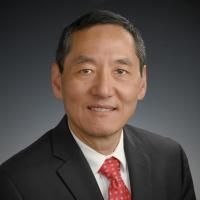A pleiotropic ATM variant (rs1800057 C>G) is associated with risk of multiple cancers.
Date
2021-10-13
Journal Title
Journal ISSN
Volume Title
Repository Usage Stats
views
downloads
Citation Stats
Abstract
ATM (ataxia-telangiectasia mutated) is an important cell-cycle checkpoint kinase required for cellular response to DNA damage. Activated by DNA double strand breaks, ATM regulates the activities of many downstream proteins involved in various carcinogenic events. Therefore, ATM or its genetic variants may have a pleiotropic effect in cancer development. We conducted a pleiotropic analysis to evaluate associations between genetic variants of ATM and risk of multiple cancers. With genotyping data extracted from previously published genome-wide association studies of various cancers, we performed multivariate logistic regression analysis, followed by a meta-analysis for each cancer site, to identify cancer risk-associated single-nucleotide polymorphisms (SNPs). In the ASSET two-sided analysis, we found that two ATM SNPs were significantly associated with risk of multiple cancers. One tagging SNP (rs1800057 C>G) was associated with risk of multiple cancers (two-sided P=5.27×10 -7). Because ATM rs1800057 is a missense variant, we also explored the intermediate phenotypes through which this variant may confer risk of multiple cancers and identified a possible immune-mediated effect of this variant. Our findings indicate that genetic variants of ATM may have a pleiotropic effect on cancer risk and thus provide an important insight into common mechanisms of carcinogenesis.
Type
Department
Description
Provenance
Citation
Permalink
Published Version (Please cite this version)
Publication Info
Qian, Danwen, Hongliang Liu, Lingling Zhao, Sheng Luo, Kyle M Walsh, Jiaoti Huang, Chuan-Yuan Li, Qingyi Wei, et al. (2021). A pleiotropic ATM variant (rs1800057 C>G) is associated with risk of multiple cancers. Carcinogenesis. 10.1093/carcin/bgab092 Retrieved from https://hdl.handle.net/10161/23955.
This is constructed from limited available data and may be imprecise. To cite this article, please review & use the official citation provided by the journal.
Collections
Scholars@Duke

Sheng Luo

Kyle Walsh
Dr. Walsh is Associate Professor of Neurosurgery and Pathology, Director of the Division of Neuro-epidemiology, and a Senior Fellow in the Duke Center for the Study of Aging and Human Development. He leads Duke’s Neuro-epidemiology Lab, which integrates bench science with statistical methods to study the neurobiology of glial senescence and gliomagenesis. This research interrogates human genomic and epigenomic profiles to identify both heritable and modifiable factors that contribute to neurologic and physical decline, applying these approaches to studying the shared neurobiology of cognition, glial senescence, and gliomagenesis. The lab has a long history studying telomere maintenance in pre-malignant cells and its role in the development of cancer, most notably glioblastoma.

Jiaoti Huang
I am a physician-scientist with clinical expertise in the pathologic diagnosis of genitourinary tumors including tumors of the prostate, bladder, kidney and testis. Another area of interest is gynecologic tumors. In my research laboratory we study prostate cancer, focusing on molecular mechanisms of carcinogenesis and tumor progression, as well as biomarkers, imaging and novel therapeutic strategies. In addition to patient care and research, I am also passionate about education. I have trained numerous residents, fellows, graduate students and postdocs.

Chuan-Yuan Li
Dr. Li is the Vice Chair for Research in the Dept. of Dermatology. Some of the areas that his laboratory conducts research on include:
•Tumor response to therapy, with special emphasis on skin cancer such as melanoma and squamous cell carcinoma where current treatment outcomes are dismal;
•Stem cell and regenerative medicine, we will conduct research to investigate novel mechanisms of stem cell biology so that knowledge gained can be translated into regenerative medicine;
•Mechanisms of carcinogenesis, with emphasis on skin cancers, so that better strategies could be devised to prevent and treat these cancers.
Within these broad areas we have different ongoing research projects. Examples of some of the research projects include:
Unconventional roles of caspases in tumor response to chemotherapy or radiotherapy. A recent area of our laboratory has been the relationship of cell death and repopulation in tumors undergoing radiation and chemotherapy. In our studies, we discovered that cell death is a key trigger for tumor cell repopulation in radiation and chemotherapy. Unexpectedly, caspase 3, which is an executioner in cell death, positively regulate paracrine signaling from dying cells to stimulate proliferation of surviving tumor cells. Furthermore, we found that higher levels of pretreat caspase 3 activation is correlated with worse outcome in head and neck and breast cancers. This is again quite unexpected and contrary to established paradigm. We are currently actively studying the relevance of this mechanism in other malignancies including melanoma. We believe such studies will not only yield promising novel treatments for cancer but also new biomarkers of diagnostic or prognostic values.
Positive roles of apoptosis in wound healing and tissue regeneration. Another area of our research is the relationship between apoptosis and wound healing/tissue regeneration. In our recent research we discovered that cellular apoptosis, in particular, apoptotic caspases 3&7, play key roles in promoting skin wound healing and tissue regeneration. We named this pathway the “Phoenix Rising” pathway for wound healing and tissue regeneration. We are actively studying this mechanism with the hope that knowledge gained could be used for regenerative medicine.
Molecular factors involved in stem cell biology regulation and trans-differentiation. Recently our lab started to investigate molecular mechanisms involved in the maintenance and self-renewal of stem cells. Our efforts led to the discovery that caspases 8&3 play critical roles in the induction of pluripotent stem cells from human fibroblasts. We are in the process of dissecting additional roles of caspases in embryonic stem cells.
Direct reprogramming of one differentiated cell type into another differentiated cell type. Recently, we have been able to directly reprogram human fibroblast cells into dopaminergic neurons, which have great potential in Parkinson's Disease. We are actively pursuing similar studies to reprogram skin fibroblasts into various cells of interest, including other skin cells, through direct reprogramming.

Qingyi Wei
Qingyi Wei, MD, PhD, Professor in the Department of Medicine, is Associate Director for Cancer Control and Population Sciences, Co-leader of CCPS and Co-leader of Epidemiology and Population Genomics (Focus Area 1). He is a professor of Medicine and an internationally recognized epidemiologist focused on the molecular and genetic epidemiology of head and neck cancers, lung cancer, and melanoma. His research focuses on biomarkers and genetic determinants for the DNA repair deficient phenotype and variations in cell death. He is Editor-in-Chief of the open access journal "Cancer Medicine" and Associate Editor-in-Chief of the International Journal of Molecular Epidemiology and Genetics.
Area of Expertise: Epidemiology
Unless otherwise indicated, scholarly articles published by Duke faculty members are made available here with a CC-BY-NC (Creative Commons Attribution Non-Commercial) license, as enabled by the Duke Open Access Policy. If you wish to use the materials in ways not already permitted under CC-BY-NC, please consult the copyright owner. Other materials are made available here through the author’s grant of a non-exclusive license to make their work openly accessible.
